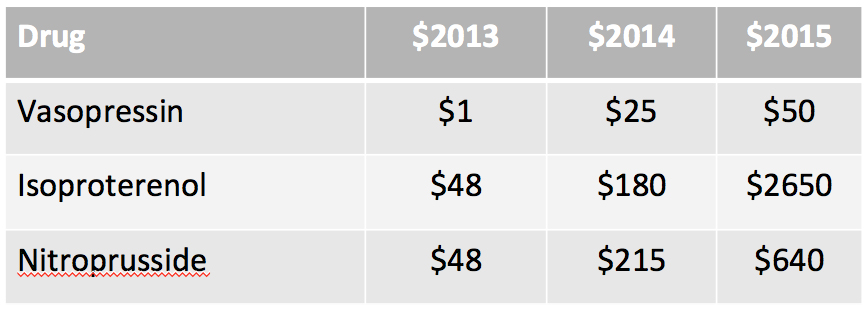Hospitals Feeling the Pinch of High Drug Prices

Utah PharmD Expert Testifies in Congress
Patients aren’t alone in their angst over soaring drug costs.
Hospitals, too, are struggling to keep up with price hikes on older, off-patent drugs—and some are having to make tough decisions about how much of these medicines to keep in stock.
“When we presented our pharmacy budget earlier this spring I had to include data showing how if we didn’t make drastic changes, we could be facing a $2.9 million increase for just three drugs,” says Erin Fox, director of the Drug Information Service at University of Utah Health Care (UUHC). “We had to do something.”
 One of the drugs alone was responsible for more than half of the budget increase, says Fox, who testified Wednesday before the Senate Special Committee on Aging. The drug, isoproterenol hydrochloride is used in cardiac emergencies and just two years ago sold for $50 a vial.
One of the drugs alone was responsible for more than half of the budget increase, says Fox, who testified Wednesday before the Senate Special Committee on Aging. The drug, isoproterenol hydrochloride is used in cardiac emergencies and just two years ago sold for $50 a vial.
Now it sells for $2,700, a price increase that led UUHC to decide to no longer stock it on crash carts. “In this instance it was OK. Our physicians said because we so rarely use [the cardiac drug] we could just keep some on hand in the pharmacy,” Fox says. But “this type of arbitrary and unpredictable inflation is not sustainable.”
For inpatient care, hospitals are typically reimbursed at predetermined, per-procedure rates, which means they can’t pass drug costs onto consumers. “It’s pretty frustrating. You can monitor supplies and be more efficient, but if at the end of the day you need a drug, you need that drug,” Fox says. “It’s hard to budget for a drug, the same drug you’ve relied upon for years, suddenly costing 100 times more.”
The University of Utah isn’t alone. Last month, Ascension Health publicly banned a drugmaker’s sales reps after the company reclassified and hiked prices on three cancer drugs, according to the St. Louis Post-Dispatch. “The move proved largely symbolic,” the newspaper reports. “Ascension, the nation’s largest nonprofit health care system, can’t stop buying the needed medications. And the drugmaker, Genentech, defended the reclassifications, saying it was done to ensure the safety of the drugs.”
Public shaming has caused some manufacturers to back off price increases, Fox says. A recent Kaiser Foundation poll found increasing drug prices are No. 1 on the list of the public’s health care concerns.
But to really reign in costs would take a major shift in policy. Expensive medicines fall into three categories, Fox says. There are the new brand name specialty drugs, like those for hepatitis C, that are priced to recoup money for investors who footed the bill for research and development. There’s the problem of drug companies re-classifying older meds, which was the case with isoproterenol.
Marathon purchased the drug from Hospira in 2014, and raised the price to about $440, says Fox. Then, in 2015, Valeant purchased the product, and again more than doubled the list price.
Finally, there’s the issue of drug shortages, which a few years ago caused prices for common, “workhorse” medicines, like antibiotics. “When the shortages were over, prices stayed high,” Fox says. “We have put reasonable strategies in place to protect against extreme increases in medications costs, but our physicians are extraordinarily frustrated by having to make decisions about whether to use these critically important but extremely expensive medications in emergency situations, especially when they have been using these drugs for years.”
To learn more:
New York Times
http://www.nytimes.com/2015/12/10/business/senators-condemn-big-price-increases-for-drugs.html?_r=0
Washington Post
Fortune
http://fortune.com/2015/12/09/drug-price-effect/
USA Today
http://www.usatoday.com/story/money/2015/12/09/senate-aging-committee-drug-hearing/77046452/
Reuters
Bloomberg
Kirsten Stewart is a senior writer at University of Utah Health Sciences
